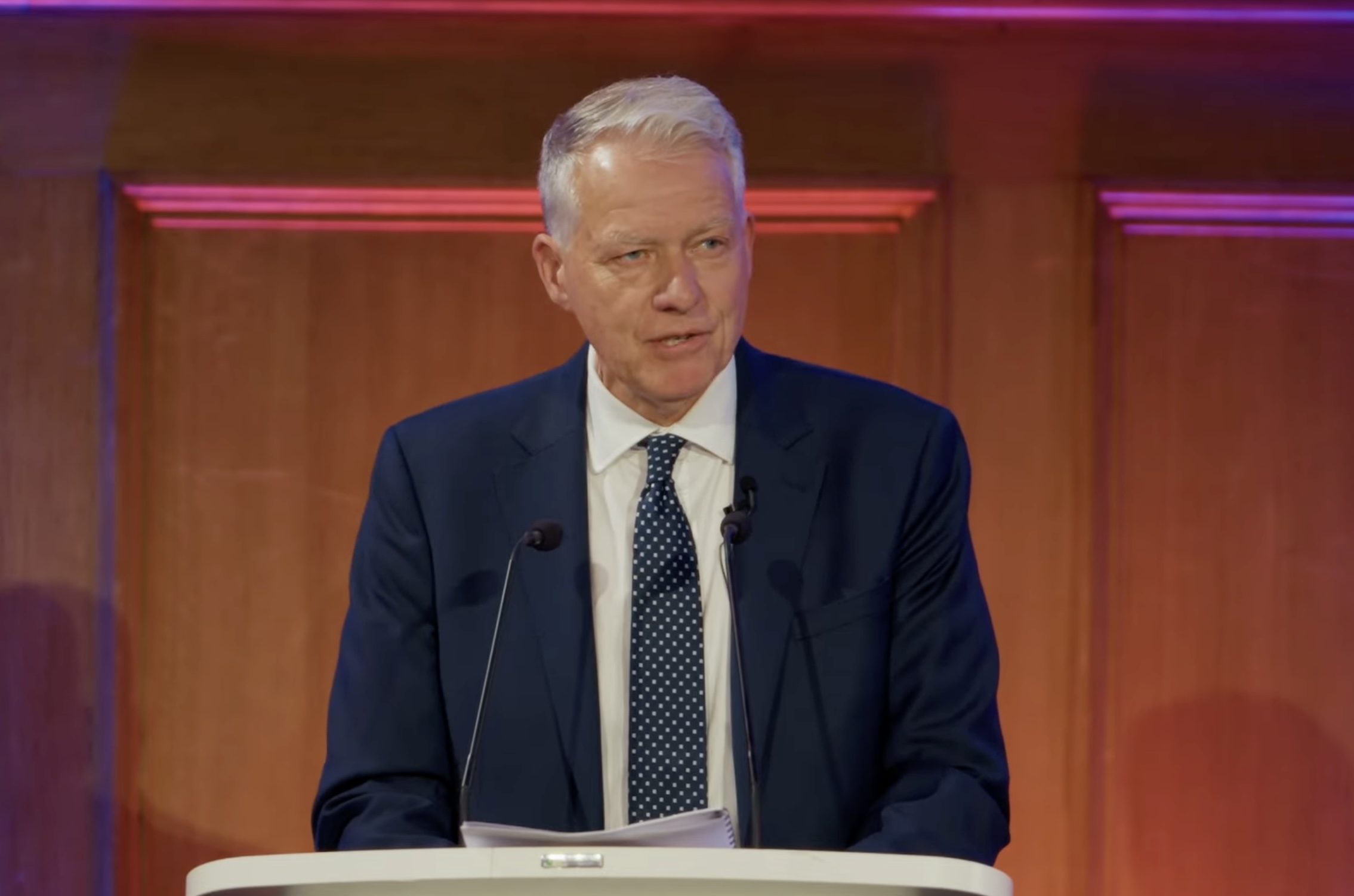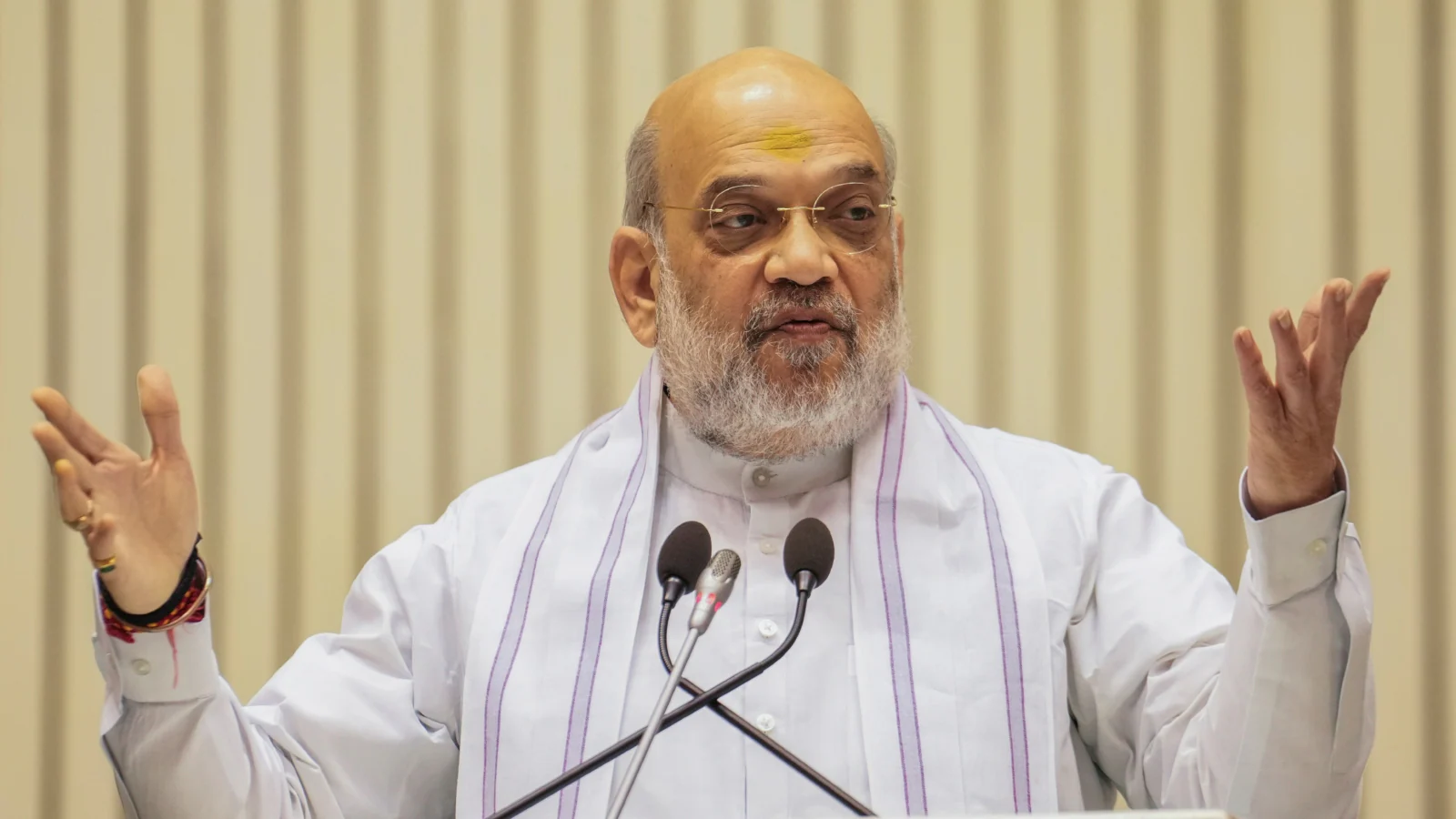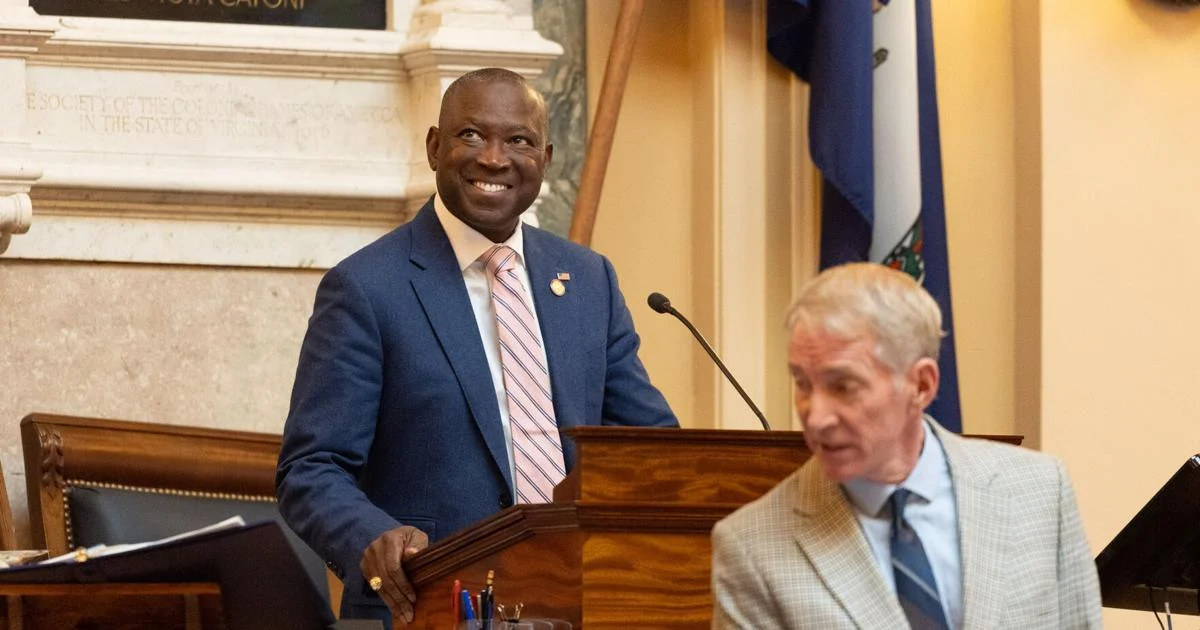Copyright The American Conservative

Loading the Elevenlabs Text to Speech AudioNative Player... William Clouston, leader of the Social Democratic Party of the United Kingdom, sat down with The American Conservative at SDP’s annual conference. SDP seems to be the only party which is attempting to merge foreign policy realism, a polite form of nationalism, and social-democratic politics, an unusual mix in the circle of European populist parties, which are often more nativist at home and interventionist abroad. Thanks for talking to TAC. You're in an odd and unenviable position to bridge a genuine social-democratic path for Britain in a world upended by rising empires and return of spheres of influence. What should be the contours of a British grand strategy? Grand strategy is not a framing I find terribly useful in relation to Britain’s present situation. Our position is necessarily more humble than that. To survey the past 25 years of British policy is to consider a series of grave errors—involvement in self-defeating wars of choice in Iraq and Afghanistan, wilful neglect of domestic energy security and manufacturing capacity, and, recently, a failure even to secure our national border. An intelligent response to re-emerging multipolarity and inevitable instability is, in my view, to focus on national resilience and capability. In particular, we must prioritize rebuilding domestic industrial capacity. This is not to ignore Britain’s geostrategic role nor its responsibility to our international partners. Britain must be a good and dependable ally to the United States, to the western, central and southern European nations, and to our friends and trading partners throughout the world. I would pursue much closer cooperation with the world’s democratic nation-states in the face of (and at times because of) the United Nations. In my opinion the observations made by Portugal’s Franco Nogueira in the 1960s regarding the UN’s innate anti-Western bias remain true. A persistent faultline in international diplomacy is the tendency of authoritarian regimes to use rights-based political concepts invented by the West as a means of attacking the West. You see hints of this in international climate policy and its blatant use in the baseless claims for slavery reparations. It must be resisted. I would advocate withdrawal, via parliamentary disincorporation, from the entire international legal architecture on asylum on the grounds that it denies nation-states the right to control their borders. In failing to control its borders, the UK state breaches the social contract with the citizens. As a result, trust in the government is collapsing. I have long believed that in the face of civilizationally destructive open borders, the West urgently needed a single state to prove it could actually reassert border control. The Trump/Vance administration appears to have done so. It deserves great credit for that, and it should serve as a beacon to the West. In the 2016 Brexit vote, the British public showed the desired direction of travel but the British political establishment failed to step up. In the defense sphere, after decades of foreign adventurism and disastrous attempts to impose our values on other societies by force, we need to focus on homeland defense—while attempting to continue to protect our international interests. A comprehensive overhaul of defense procurement is also required. Modern threats to our way of life are not exclusively military in nature: terrorism, organized crime and cyber-attack are evolving with speed and sophistication. Much of the threat may be homegrown. I believe that Britain’s security challenges are as likely to be internal as external. The American right has moved beyond the ideas of crusades in the Middle East and civilizing mission, but it appears that for all the talk, the British right is still rhetorically stuck in a bizarre, unoriginal admixture of Thatcherite market economic and mid-aughts crusading neoconservatism. Is that sustainable after Trump’s moves in Gaza or the peace process in Ukraine? The urgent political turn involves a rotation away from free-market fundamentalism towards economic nationalism—away from cheap imports and huge trade deficits, and towards domestic productivity. This requires an end among our elites to an indifference to what is made where and by whom—and to who owns what. Future national economic resilience requires a total shift in thinking. This adaptation has already taken place in the USA, embodied by Trump and Vance and long promoted by thinkers like Oren Cass and Robert Lighthizer. Alas, at present, the Social Democratic Party (SDP), although relatively small in size, represents its sole political vehicle in Britain. True, there are some who promote this view within Britain’s establishment parties—such as Lord Glasman in Labour and the Tory Nick Timothy—but they are totally outnumbered and too often ignored. Domestically, the UK is still trapped in the final vestiges of an economic paradigm which can be traced back to Thatcherism—a point I made in a recent interview with Lord Charles Moore, author of Margaret Thatcher’s authorized biography. The state can’t balance its budget, can’t control its borders, is addicted to mass immigration, and hasn’t had a goods trade surplus since 1983. The model doesn’t work, but the establishment on the British political right is having difficulty in recognizing this. This is not a sustainable position. I occasionally point out that I don’t know what Reform UK’s international trade policy is - because they don’t know. On a brighter note, aggressive interventionist neoconservatism in Britain is largely dead as an organic movement. Attempts to impose our values on foreign societies by force and now, rightly, regarded as utterly futile. While we do see saber-rattling in the opinion pages of some newspapers, these voices are now a largely discredited minority. Tell us about your energy independence platform, arguably the central public policy of your party? The energy sector is the master industry upon which all others depend. All successful economies require abundant, affordable energy, and yet Britain has the highest energy prices in the industrial world. Our system is unreliable, produces too little power at too high a price, and is too reliant on imports. Britain pioneered civil nuclear power—its postwar energy expansion comprised 19 plants and 41 reactors. Now, we have an energy crisis and import gas to keep the lights on. In September 2025 the SDP published a research paper called “Energy Abundance” to diagnose our problems and to suggest intelligent remedies. The causes of this crisis are clear: the abandonment of state planning in 1989, a flawed privatization (natural monopolies are not good candidates for privatization), the deliberate throttling of oil and gas production, and finally, the rise of ideology in the form of net zero and costly unreliable renewables. We calculate that this combination of policy failures has reduced UK economic output by over £3,070bn since 2004. Economic problems tend to have underlying cultural causes. This is true in the case of energy. Basically, our elites have traded our prosperity for their own self-righteousness. First, they became indifferent to the need for reliable domestically generated power. They shrugged off what is a central duty of the state and hoped markets would magically do the job for them. Secondly, they pretended that the shift to expensive, intermittent, unreliable renewables was not a prime cause of deindustrialization. Evidently, it is, and the economic harm is considerable—you can’t tax a closed factory. Thirdly, having bet the bank on net zero, our elites have structured our energy system to require huge imports of natural gas. We’re now importing over 40 percent of our energy. How do we pay for that? As the trade balance shows, it’s not by exporting things. As the party of the patriotic state, the SDP is calling time on this crisis. Our remedy is straightforward: to take control of the energy system. First, we build a new fleet of state-owned hydrocarbon power stations within five years: 40GW of gas, 20GW of coal. Second, over the coming decade, we pursue a new 40GW fleet of state-owned nuclear power stations. All of this is to flood the grid with enough supply to roll out step 3: the establishment of a permanent price fix of 10p per kWh, for consumers and industry. This innovative idea would significantly raise national output by permanently locking in low energy prices: along with providing an affordable price, such a fix would ensure long-term confidence by investors and industry in the UK’s operating environment. In sum, the SDP solution to the energy crisis is to use brute force—the sort of thing a competent state is capable of. And we have a saying within our party: If brute force isn’t working, you’re not using enough. In international relations, a key problem is (a) an entity either grows small and suffers the fate of Hungary or Ireland, pressed on all sides by massive empires and financial interests, or (b) grows in size and becomes imperial itself for the sake of competing with other interests, thereby diluting democratic norms. Like many former empires, Britain suffers from a problem of diminishing size and influence. Some are reversing that fate by various means—Turkey and Russia, for example. Might CANZUK be a solution to that? Instantly [creating a bloc with] a joint navy, and manpower, and combined GDP that will be among the largest? I view Anglo-Western civilisation as a rich and distinct cultural phenomenon worthy of both appreciation and protection. And as someone with British, Canadian, Australian, and American family members, I am personally attracted to the CANZUK concept. I support largescale cooperation between these democratic Anglosphere states. There is much to be gained in developing even closer trade, defence and security ties, as the recent AUKUS trilateral partnership demonstrates. Indeed, our future probably depends upon them. However, I do not take the prospects of the development of a joint federation or confederation very seriously. Talk of a “joint navy and combined GDP” strikes me as flawed as the type of 1950s utopian thinking which gave rise to the EU. Strong nation-states are in a better position to protect the interests of their citizens than weak federations. Furthermore, those promoting CANZUK often cite freedom of movement as a key goal, but I consider such an aim to be totally unachievable. In the present environment, I could not envisage a state like Australia granting full freedom of movement to every citizen of the United Kingdom. Such a decision would prompt vast flows—including huge numbers of unassimilated and culturally challenging minorities. (The British security service MI5 monitors around 40,000 due to Islamist terror threats.) As one of the few Western states with an effective national border, I believe the Australians would be very foolish to agree to it. Is rising English ethnonationalism a threat to the Union? There is no doubt that the English have, finally, been culturally stirred. It has long been complacently assumed that English interests are safe and require no special attention. Indeed, until recently the sense of English nationhood was so merged with Britishness that they could be taken as practically synonymous. When England won the football world cup in 1966, the public flew more British union flags than English crosses of St George, and no one thought this unusual. They would now. For the English, there have been downsides to this merging of identities. For decades national pride in the Celtic nations has been culturally warranted, whereas Englishness has been subtly forbidden. The Scots, the Irish and the Welsh could celebrate their national saints’ days with vigour and without any backlash or cultural disapproval. Despite being the majority, the English have had no such licence. Furthermore, the denigration of Britain’s imperial past has fallen squarely on English shoulders—despite the historic record showing enthusiastic participation in the imperial and colonial project from the Celtic nations. Constitutionally, the establishment of new national parliaments and assemblies in Scotland, Wales and Northern Ireland by the Blair Labour government has left England dangling with no parliament granted or planned. Some say that England is too big to have its own parliament within the UK structure, but by that logic England is too big for the union. Is rising English ethnonationalism a threat to the Union? I’d answer that any population denigrated by their own elite to the extent the English have been would eventually react. And they have done so. Today, we find ordinary towns and villages throughout the land campaigns such as “Raising the Colours” in which the Cross of St George is flown in public places throughout. In England, this is very unusual. However, as I said in my speech to the SDP Conference in London last month, putting English flags on lampposts is not merely a demand for recognition, but a justified revolution against the disprivileging of the majority. As in so many other areas, progressives consistently fail to recognise their role in the cultural mobilisation they have caused. I do not believe the union will split. Instead, it will culturally fragment, as much within England along religious and ethnic lines as between England and the fringe. Full legal separation of the UK is a formidable task. Brexit was very difficult, but unscrambling the UK egg would be close to impossible. Many of us—myself included—have family on both sides of the Scots border, and are literally Brits in the sense of being Anglo-Scots. The same is true of Wales and to some extent Northern Ireland, although the latter has a different path available to it. The political philosopher John Gray has predicted that the UK will hold together, and I think he is right. Celtic nationalists crave independence but can’t make their fiscal sums add up. The English population tend to respond with indifference to, say, Scottish independence, but that is partly due to a lack of strategic awareness of what such a thing might entail. The real bargain is quite straightforward. The English taxpayer subsidises Scotland and, in return, secures a safe northern realm. Financial transfers ensure England’s strategic security. Why? Because in theory a fully independent Scotland could completely diverge from the UK security system. In extremis it could grant Russia or China a naval base in Scapa Flow (the natural naval harbour in Orkney). Scotland is integral to England’s security. Seen like that, the union must hold. One further but notable impediment to English ethnonationalism as a threat to the union is that I can presently see no route in which English independence would be secured. Scotland, Wales, and Northern Ireland all have substantial long-established separatist political parties. England has none. And it has no viable route to any vote on the matter.



